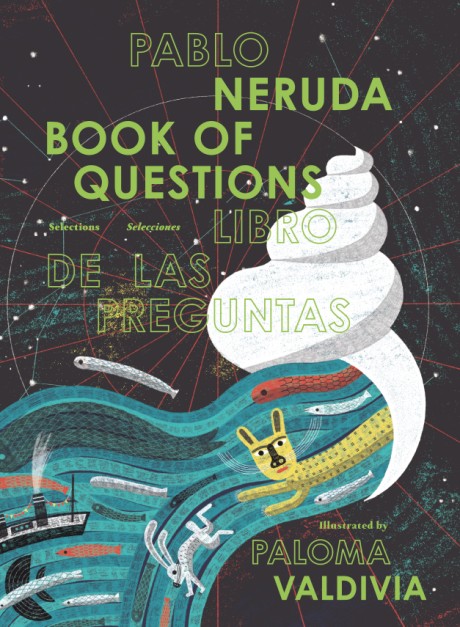Pablo Neruda's Titles

Book of Questions
Where is the center of the sea? Why do the waves never break there? A book containing unanswerable, fantastical questions, inviting us to be...



Where is the center of the sea? Why do the waves never break there? A book containing unanswerable, fantastical questions, inviting us to be...